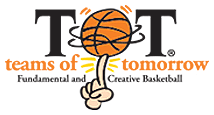Trading your daily crossword for the treadmill could actually help your brain.
Brain exercises on apps or paper do a lot of good for our noggins. But neglecting the connection of exercise to our brain strength and refusing to get moving may actually be inhibiting us from achieving an even sharper mind.
Physical activity has been found to make parts of our brain larger and stronger, allowing us to catch on quicker during a lesson and expand our creativity. One common observation among researchers remains the improvement of mental performance after exercise.
Recent discoveries of cerebral success after movement may soon change the way we approach teaching, especially for children, incorporating the importance of play and exercise into everyday learning.
How the Hippocampus Comes into Play
The hippocampus is small, curved portion of the brain that deals with learning and memory formation. Given the brain’s symmetry, we have one hippocampus on each side, located right above the ear about 1 ½ inches inward.
While it helps to form and store away new memories, the hippocampus also helps to make connections between memories and stimuli. For example, the hippocampus may help you to remember a moment with your friends at the sound of an old song.
The hippocampus acts as a facilitator of information, including having a hand in new brain cell growth. Exercise stimulates the growth of brain cells as well as the hippocampus itself, with researchers finding that the hippocampus grew stronger as an individual’s fitness improved.
Improving Academics with Movement
Stimulating brain cell growth can work as an advantage for children learning new skills. According to Parenting Science, one study revealed that kids who exercised for 10-20 minutes before taking a math assessment performed better than others who didn’t exercise beforehand.
Kids receive long-term benefits from regular exercise as well, with several studies showing academic improvement on exams after several weeks worth of activity.
Recent findings may prompt some schools to rethink recess omission for children, a crippling result as school systems try to make room for more classroom learning without any allowance of movement or play during the day.
Parents who drill down on brain exercises for children during the summer months or after school may want to try incorporating brief periods of movement. It’s all about balance. Exercising is like nature’s coffee—it gives your body and mind a boost of energy and improves the ability to focus.
It works for people of all ages. Active found that people exercising some time during the work day were 23 percent more productive than others who didn’t.
How Exercising Affects the Brain in Other Areas
The growth of the hippocampus with physical activity brings about a slew of other positive, brain-boosting effects. The Guardian credits exercise with improved concentration, making it easier to ignore distractions and tend to multiple activities at one time. The movement doesn’t have to be rigorous. One study found the attention of teenage subjects improved after bouncing two balls for 10 minutes.
Physical activity can also help to decrease anxiety and depression and boost a free-roaming imagination. Not to mention regular exercise can keep your brain functioning well into your golden years, helping to deter cognitive decline that typically comes with old age.
Learn with Movement at Teams of Tomorrow
Teams of Tomorrow engages children in movement to teach both basketball fundamentals and foundational academic skills. We believe getting kids to move makes learning easier. Find a TOT program near you to enroll your child today!

